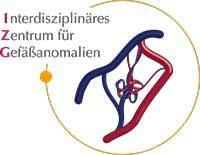Neuroendocrine Tumor (NET) of the Colon — Embolization or Chemoembolization: treatment in the Best Hospitals in the World
Treatment prices are regulated by national law of the corresponding countries, but can also include additional hospital coefficients. In order to receive the individual cost calculation, please send us the request and medical records.

Department of Interventional Radiology
The Department of Interventional Radiology offers the full range of imaging examinations, as well as innovative image-guided minimally invasive techniques for the treatment of tumors, vascular diseases and internal pathologies (for example, CT, MRI, PET-CT, SPECT). The department's doctors have deep knowledge and colossal experience in the field of interventional radiological methods of treatment, which represent an excellent alternative to open surgical interventions. Despite the high level of technical equipment and the presence of advanced computerized systems, the focus is always on the person with his individual needs. Compliance with current clinical protocols and high professionalism of the department's specialists contribute to the successful clinical practice, as well as the reputability of the department among the best medical facilities of this kind in Germany.




Department of Interventional Radiology and Neuroradiology
The Department of Interventional Radiology and Neuroradiology offers a full range of advanced imaging diagnostics and minimally invasive treatments on both an inpatient and outpatient basis. The department has state-of-the-art medical equipment for imaging tests such as X-ray, computed tomography, magnetic resonance imaging, digital subtraction angiography, and mammography. The medical facility also performs many highly effective interventional therapeutic procedures under image guidance, which in many cases allow patients to avoid traumatic open surgery. For example, the department successfully performs local fibrinolysis, thrombectomy, percutaneous transluminal angioplasty, hemostasis, transarterial chemoembolization, uterine artery embolization, and other procedures. The department's neuroradiologists specialize in brain and spinal cord imaging and the treatment of central nervous system disorders. Interventional neuroradiology focuses on the treatment of carotid artery stenosis, brain aneurysms, arteriovenous malformations, dural fistulas, subdural hematomas, brain tumors, skull base and spinal tumors, and chronic back pain. The department's medical team has extensive clinical experience in their areas of expertise. The specialists are guided by the recommendations of the German Society for Interventional Radiology and Minimally Invasive Therapy (DeGIR) and the German Society for Neuroradiology (DGNR), which helps to achieve the best results.






Department of Adult and Pediatric Diagnostic, Interventional Radiology, Neuroradiology
The Department of Adult and Pediatric Diagnostic, Interventional Radiology, Neuroradiology is one of the best institutions of its kind in Germany and offers patients the full range of radiological studies and imaging-guided minimally invasive therapy. The department’s scope of tasks also includes imaging diagnostics in children of all age groups, detection and invasive treatment of cerebral vascular pathology (neuroradiology). Patient care is provided both on an inpatient and outpatient basis.






Neuroendocrine tumors (NETs) are a group of neoplasms that grow from hormone-producing cells. About 60% of them develop in the organs of the digestive system. Doctors usually use surgery for the treatment of colon neuroendocrine carcinoma. However, in the advanced stages of the disease, there may be a need for additional therapeutic procedures, including embolization and chemoembolization for the tumor vessels.
Content
- What is embolization
- Features of intestinal neuroendocrine carcinomas
- In what cases can embolization be used
- Embolization of the colon vessels
- Hepatic artery chemoembolization
- Why is it worth undergoing treatment abroad
- Treatment in Europe with Booking Health at an affordable price
What is embolization
Embolization is a method of cancer treatment that closes the lumen of the arteries feeding the tumor. Cells that are deprived of blood supply quickly die.
Embolization is usually combined with regional chemotherapy, which involves intra-arterial administration of cytostatics. In this case, the procedure becomes more effective, since it additionally affects the tumor with chemotherapy drugs in high concentration.
The method is used for the treatment of dozens of types of cancer, including neuroendocrine tumors. The advantages of the method are as follows:
- Minimal invasion – embolization is performed through the blood vessels.
- Safety for the patient's health – if properly performed, complications occur very rarely.
- Good patient tolerance.
- The minimum length of the patient's hospital stay – the period of hospitalization usually does not exceed 3-4 days.
- The patient does not need rehabilitation.
- Embolization can be combined with any other cancer treatment.
- If the patient responds to therapy, then the procedure can be performed many times, so it allows restraining the progression of pathology for a long time.
Features of intestinal neuroendocrine carcinomas
Approximately 25% of neuroendocrine tumors develop in the large intestine. 9% of them develop in the colon, while 16% affect the rectum. Most neoplasms originate from L cells that produce glucagon-like peptide and tyrosine-tyrosine peptide.
But nevertheless, as for other neoplasms, neuroendocrine carcinomas are very rare. They account for only 0.4% of colorectal tumors.
Previously, neuroendocrine tumors were called carcinoids, which means neoplasms similar to cancer. Today this term is considered obsolete. In the 21st century, the term neuroendocrine tumor was introduced. Now only highly differentiated (G1) neoplasms are called carcinoids. Since 2010, NETs have been called neuroendocrine neoplasia.
For neuroendocrine tumors of the large intestine, a classification according to the tumor grade has been developed. These neoplasms are of low (G1), intermediate (G2) and high grade (G3). It is determined according to the data of histological examination, based on the proliferative activity of cells (ability to divide).
In what cases can embolization be used
The most common treatment for colon neuroendocrine carcinoma is surgery. The doctor removes part of the colon along with the tumor. This is often enough to cure the patients and no other technique is required. If the tumor is malignant, large, or metastases have appeared, then chemotherapy is additionally used. For some patients, it is prescribed prior to surgery to reduce neoplasms.
In the advanced stages, somatostatin analogs are used, which slow down the growth of neuroendocrine carcinoma. Some patients are prescribed radionuclide therapy: radioactive substances are added to somatostatin analogs, which accumulate in tumors, metastatic foci, and destroy them with radiation.
For the treatment of the disease, other methods may be required. These may be embolization or chemoembolization for the tumor vessels. They can be used for local control of neoplasms or distant metastases.
The neuroendocrine carcinoma in the colon grows very slowly. Only a tumor of the appendix gives symptoms early – it causes the same manifestations in patients as with appendicitis. At the same time, neuroendocrine carcinomas of other parts of the large intestine cause symptoms only after reaching a large size and the development of intestinal obstruction. At the time of detection of a neoplasm, 45% of patients have metastases in the lymph nodes, and 10% of them have distant metastases. Most often, colon neuroendocrine carcinoma metastasizes to the liver.
Embolization can be used in the following cases:
- Prior to surgery, to make surgery less traumatic, safer, and reduce the risk of recurrence.
- As an option for palliative therapy – in order to stop gastrointestinal bleeding.
- With liver metastases – for their destruction.
Embolization of the colon vessels
Embolization for bleeding cessation can rarely be used. This is due to the fact that the bleeding itself rarely complicates the course of colon neuroendocrine carcinoma. They are more common in patients with rectal tumors.
Prior to surgery, chemoembolization of the colon vessels can be used only in certain medical centers. The technique is not yet a standard treatment for the disease. Nonetheless, the use of embolization seems promising: it can shrink the tumor before surgery, reduce blood loss during surgery. A decreased risk of recurrence is expected, although this effect of preoperative chemoembolization has not yet been proven in clinical trials. If the procedure is carried out before the operation, then the surgical intervention will be performed after 1-2 weeks.
The manipulation is minimally invasive and well tolerated by patients. The doctor inserts a catheter through the femoral artery. He reaches the vessels, and conducts angiography to assess their structure. He then injects an embolysate to close the lumen of the target arteries.
If the technique is used to stop bleeding, it is usually pure embolization, without the use of regional chemotherapy. The doctor can close the arteries with coils, microparticles, a hemostatic sponge, alcohol, glue, or one of dozens of other methods. After the closure of the blood flow, the bleeding from the colon immediately stops. Whenever required, the procedure can be carried out even emergently.
If the procedure is performed before surgery to remove a neuroendocrine carcinoma, it is usually oily chemoembolization. Doctors use lipiodol emulsion with chemotherapy drugs. It clogs blood vessels and damages cancer cells with a large dose of cytostatics.
Hepatic artery chemoembolization
With colon neuroendocrine carcinoma, doctors most often use chemoembolization to suppress liver metastatic foci of neuroendocrine carcinoma. This procedure can be combined with colon resection surgery.
From the colon, blood flows to the liver through the portal vein system. Therefore, it is in this organ that metastasis of neuroendocrine carcinoma most often develops. If possible, they are removed surgically. Doctors abroad perform combined operations for simultaneous colon and liver resection. Nonetheless, only a few patients are candidates for such treatment. As a rule, liver metastases cannot be surgically removed. In this case, chemoembolization becomes the main treatment option.
Medical specialists in Europe use drug-eluting microspheres to perform the procedure. These are tiny balls filled with chemotherapy drugs. They block branches of the hepatic artery and block blood flow to the tumor. Then, over several weeks, drugs are released from the microspheres, which continue to destroy cancer cells.
The procedure does not usually cause significant damage to the healthy part of the liver. This is due to the fact that the organ has a dual source of blood supply. While metastasis of neuroendocrine carcinoma feeds on 90-95% of arterial blood, healthy parenchyma receives 75% of blood from the portal vein. Therefore, the closure of the lumen of the hepatic artery has a stronger effect on the tumor than on the unaffected part of the liver.
Why is it worth undergoing treatment abroad
In developed countries, the level of medicine is higher. European hospitals use state-of-the-art equipment and employ the best specialists in the world. Oncology is a science-intensive, high-tech area of medicine. These are developed countries that achieve the best cancer treatment results.
There are several reasons for you to undergo medical treatment abroad:
- Extensive experience in performing embolization for colon neuroendocrine tumors.
- High-precision diagnostics allows doctors to perfectly assess the structure of the vessels in the area of the neoplasm in order to perform the procedure without complications and with the best result.
- The use of different embolization methods, which allows choosing the best option for each patient.
- It is possible to perform vascular chemoembolization for both the primary tumor and its metastases.
- To prevent complications, during the procedure, doctors protect the non-target vessels with coils or a balloon catheter in order to prevent embolysate from entering them.
- Embolization can be successfully combined with other methods of cancer treatment: surgery, systemic chemotherapy, hormone therapy and radionuclide therapy.
Treatment in Europe with Booking Health at an affordable price
To undergo treatment in one of the European hospitals, please use the services of the Booking Health company. On our website, you can see the cost of treatment in different hospitals, compare prices and book a medical care program at a favorable price. Arterial embolization in European hospitals will be easier and faster for you, and the cost of treatment will be lower.
Please leave your request on our website. Our employee will contact you and advise you about treatment in Europe. Booking Health will take care of the organization of your trip. We will provide the following benefits:
- We will select a hospital for the treatment in Europe, whose doctors specialize in the treatment of colon neuroendocrine tumors.
- We will help you overcome the language barrier, establish communication with your attending physician.
- We will reduce the waiting time for the start of the medical care program and book a doctor's appointment on the most suitable dates.
- We will reduce the price. The cost of treatment in European hospitals will be lower due to the lack of additional coefficients for foreign patients.
- We will take care of all organizational issues: documents for entering the country, transfer from the airport, hotel, interpreting services, etc.
- We will prepare a program and translate medical documents. You do not have to repeat the previously performed diagnostic procedures.
- We will provide communication with the hospital after treatment in Europe.
- We will organize additional diagnostic examinations and treatment in European hospitals, if necessary.
- We will buy medicines abroad and forward them to your native country.
- We will help you keep in touch with the hospital and the doctor after treatment in Europe.
You will receive treatment from the best doctors in the world. The Booking Health employees will help reduce the cost of treatment and solve all organizational issues, and you will only have to focus on restoring your health.
Authors:
This article was edited by medical experts, board-certified doctors Dr. Nadezhda Ivanisova, and Dr. Bohdan Mykhalniuk. For the treatment of the conditions referred to in the article, you must consult a doctor; the information in the article is not intended for self-medication!
Our editorial policy, which details our commitment to accuracy and transparency, is available here. Click this link to review our policies.

